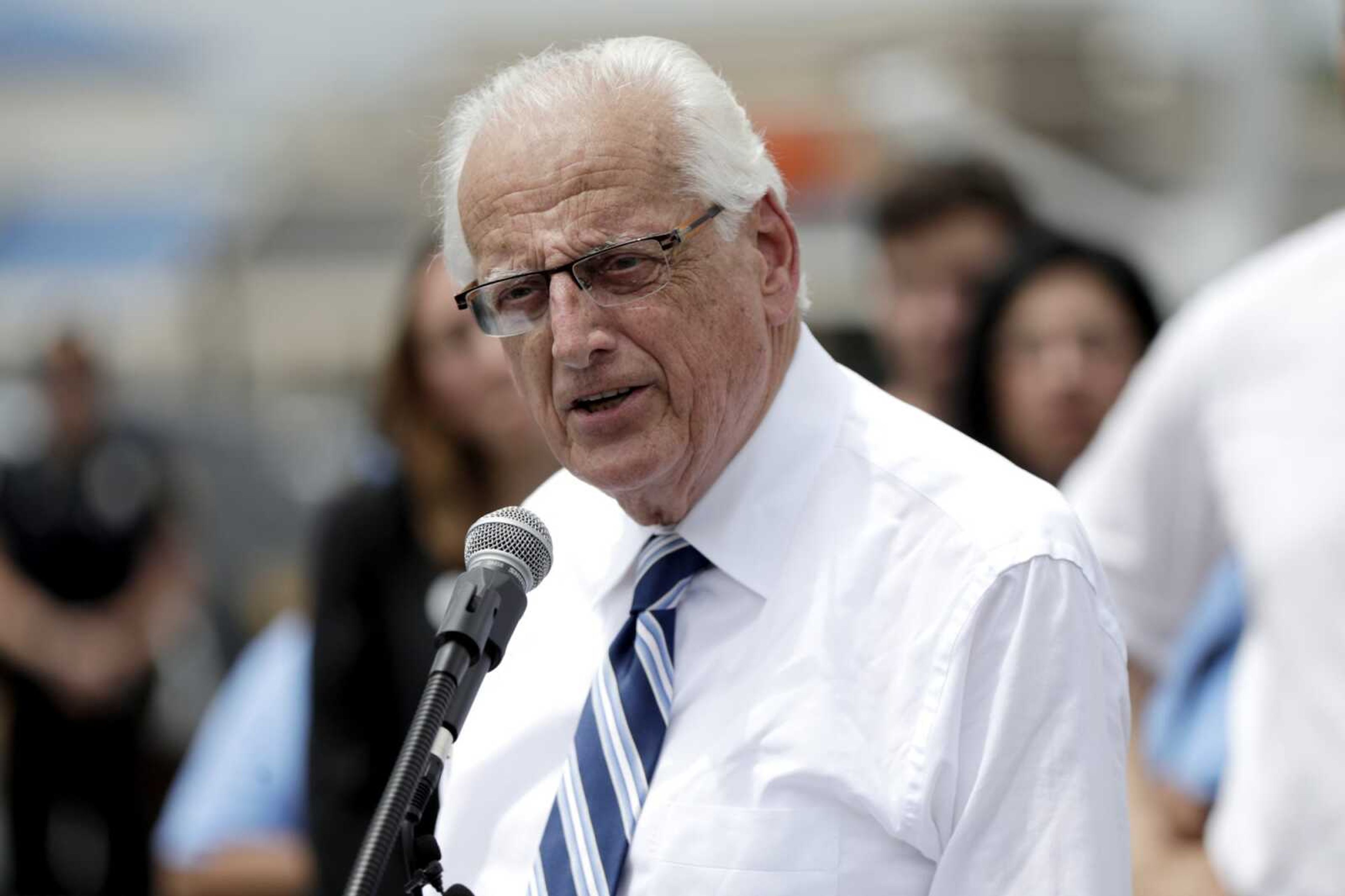Trump's new NAFTA faces skeptics
WASHINGTON -- President Donald Trump spent more than a year browbeating the leaders of Canada and Mexico into agreeing to a rewrite of North American trade rules. And today, leaders of those two nations are set to sign the pact at the Group of 20 summit in Buenos Aires, Argentina...
WASHINGTON -- President Donald Trump spent more than a year browbeating the leaders of Canada and Mexico into agreeing to a rewrite of North American trade rules. And today, leaders of those two nations are set to sign the pact at the Group of 20 summit in Buenos Aires, Argentina.
Now, Trump faces what could prove a more formidable foe: His own Congress.
Emboldened by their takeover of the House starting next year, many Democrats say they want the new agreement to strengthen its protections for American workers from low-wage Mexican competition. Yet any such changes could raise new objections from Republican free traders who want to limit the ways the pact could restrict corporate practices in North America.
What Trump had hailed as a triumph for his administration -- a newly named U.S.-Mexico-Canada Agreement to replace the 24-year-old North American Free Trade Agreement, which he'd long condemned as a job-killer for Americans -- now faces a hazier future.
"It's going to be a very tough sell," said Democratic Rep. Bill Pascrell of New Jersey, top Democrat on the House subcommittee that oversees trade issues.
Leaders of the three countries agreed to the USMCA just hours before a U.S.-imposed Sept. 30 deadline. Yet the legislatures of the three countries must still ratify it. Many trade analysts say the new NAFTA isn't very different from the old one despite Trump's claim it would "transform North America back into a manufacturing powerhouse."
"It's really the original NAFTA," said Mickey Kantor, a partner at the law firm of Mayer Brown and U.S. trade representative in the Clinton administration.
For years, it was the Democrats who complained about NAFTA, which tore down most trade barriers between the U.S., Canada and Mexico. They argued it encouraged U.S. companies to close factories, lay off American workers and move to Mexico to capitalize on cheap labor. By contrast, pro-business Republicans defended the deal, which they said encouraged an explosion in trade among the three North American countries helping all three.
But Trump campaigned as a different kind of Republican. He called NAFTA a "disaster" and dispatched U.S. Trade Rep. Robert Lighthizer to negotiate a new version, threatening to abandon the regional trade bloc entirely if he couldn't get what he wanted.
Lighthizer worked to win Democratic support. And the USMCA includes provisions meant to address criticisms of the deal it replaces. For example, it requires 40 percent of cars eventually be made in countries paying autoworkers at least $16 an hour -- that is, in the United States and Canada and not in Mexico -- to qualify for duty-free treatment. It also requires Mexico to pursue reforms of labor law to encourage independent unions to bargain for higher wages and better working conditions for Mexicans.
And when the NAFTA replacement was announced, Senate Democratic leader Chuck Schumer of New York said Trump "deserves praise for taking large steps to improve" on NAFTA.
John Murphy, senior vice president for international policy at the U.S. Chamber of Commerce, which supports the new trade deal, argued it includes features intended to address Democratic concerns about how American workers would be affected.
"The possibility of building a bipartisan coalition for this agreement is there," he said.
But with Democrats in charge of the House and exerting more influence in Congress, a coalition might be harder to assemble.
"This deal hasn't met the mark," said Celeste Drake, trade policy specialist at the AFL-CIO. "We're not really done here."
Drake and other critics say the requirement for labor reforms in Mexico isn't enforceable and needs to be given more teeth. And they oppose a provision giving manufacturers of biologics -- ultra-expensive drugs produced in living cells -- 10 years of protection from generic competition. Without competition, critics say, pharmaceutical companies could drive up prices and make health care even costlier for Americans.
"NAFTA 2.0 is also stuffed with handouts that will let big drug companies lock in the high prices they charge for many drugs," Democratic Sen. Elizabeth Warren of Massachusetts said in a speech Thursday announcing her opposition to USMCA. "The new rules will make it harder to bring down drug prices for seniors and anyone else who needs access to life-saving medicine."
Connect with the Southeast Missourian Newsroom:
For corrections to this story or other insights for the editor, click here. To submit a letter to the editor, click here. To learn about the Southeast Missourian’s AI Policy, click here.








